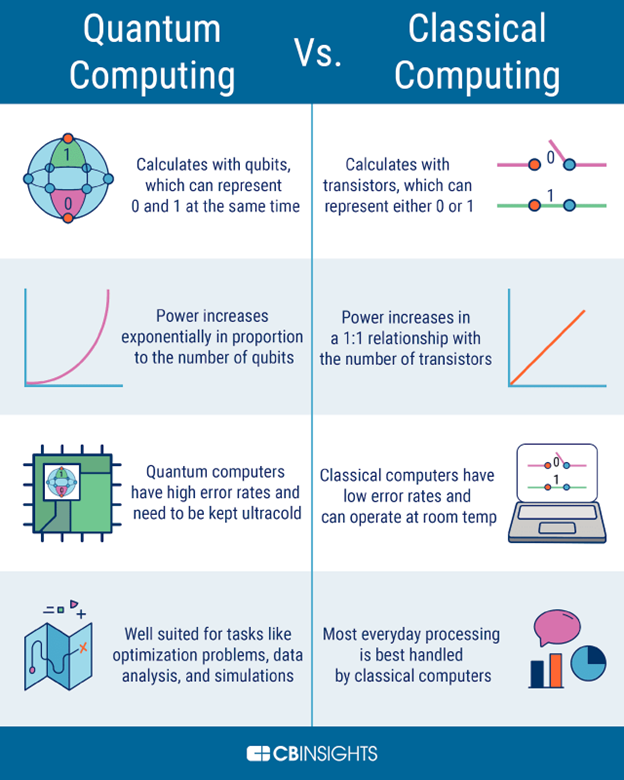Quantum Computing Company Makes Major Breakthrough
A Toronto-based start-up, Xanadu Quantum Technologies, Inc., seems to have made a major advance towards useful quantum computers by figuring out how to network thousands of server racks together without losing critical information thereby solving a key problem standing in the way of the technology becoming genuinely useful for businesses.
Xanadu's new Aurora system consists of 35 photonic chips and 13 kilometres (8.1 miles) of fibre (fiber) optics spread across four server racks connected together to act as a single “baby data centre (center)” without dropping critical information and claims (see Xanadu's published results in the journal Nature). its method can scale up to the thousands of server racks required to form a quantum computer that can solve real-world problems. “No one’s done that before", said Xanadu's founder, and CEO, Christian Weedbrook.
Xanadu's goal is to start building a full-size quantum data centre in Toronto in 2029 but before scaling up the company needs to solve another major quantum computer problem - minimizing and correcting errors (called hallucinations) that devices produce when they’re running algorithms. According to Weedbrook, Xanadu has significantly improved the performance of its chips and other optical parts over the last year and a half, but must make them better still to achieve fault tolerance. and its use of photonics—different states of light—in its computing and networking hardware gives it an edge over competitors taking other approaches.
Founded in December 2016, Xanadu now has 220 staff and has raised US$241 million from institutional investors, $40 million from Canada's flagship Strategic Innovation Fund, and is in the early stages of raising a new US$200 million round,
Figuring out how to connect thousands of server racks together into a single, giant quantum computer is a major advance, Weedbrook said. “The light at the end of the tunnel is getting far brighter.”
What is Quantum Computing?
According to Precedence Research, the quantum computing (QC) industry is a rapidly evolving and expanding field that is expected to experience a compound annual growth rate (CAGR) of 36.9% between now and 2030. That being said, however, according to McKinsey’s estimation, operational quantum computers are only expected to reach about 5,000 by then but, when they do, they will change the world as we currently know it.
The better the computing power, and the more data, the better a semiconductor will perform and, as such, the race is on for companies to radically upgrade the computing power of their models and that’s where QC comes in. Computers currently operate on a binary system that is equipped with chips that use bits to perform computations but these bits can only show a value of zero or one and, as a result, it takes a lot of zeros and ones arranged in specific orders for a computer to do anything. (Check out this video on Quantum Computing: 4 Things You Need to Know.)
QCs, however, operate with subatomic particles that use quantum bits (qubits) to allow the particles to exist simultaneously in more than one state which increases processing speeds dramatically – and quicker processing speeds mean that computers can tackle more complex problems, which will improve predictive analytics, pattern recognition and complex optimization tasks.
-

- Source: CBInsights
As explained above, present day “classical” computers operate on a binary system that is equipped with chips that use bits to perform computations. These bits are limited, though, and can only show a value of zero or one, so it takes a lot of zeros and ones arranged in specific orders for a computer to do anything.
The research, development and leveraging of “quantum” computers operate with subatomic particles that use quantum bits (qubits) to allow the particles to exist simultaneously in more than one state dramatically increasing processing speeds dramatically – and quicker processing speeds mean that computers can tackle more complex problems, improving predictive analytics, pattern recognition and complex optimization tasks.
Building a QC is extremely expensive, complex and massive, and needs to be kept in stable laboratory conditions so, while there are close to 200 companies whose primary focus is on QC Software, according to The Quantum Insider, just over 20 companies worldwide are working on QC Processors and Chips.
The MunAiMarkets Pure-Play Quantum Computing Stocks Portfolio:
-
Up 15.9% w/e July 4th and is now Up 16.8% YTD
Only 4 companies are researching and developing quantum computers exclusive of anything else and below are their stock performances last week, in descending order, and YTD along with a description of their businesses:
- Quantum Computing Inc. (QUBT): Up 22.1% w/e July 4th; Up 27.7% YTD
- developing photonic qubits that offer a number of key advantages over trapped ions or superconducting qubits
- Rigetti Computing (RGTI): Up 21.5% w/e July 4th; DOWN 11.9% YTD
- specializes in superconducting qubit technology and has developed a suite of software tools and algorithms for programming and simulating quantum computations
- D-Wave Computing (QBTS): Up 19.8% w/e July 4th; Up 99.9% YTD
- focuses on quantum annealing technology
- IonQ (IONQ): Up 10.3% w/e July 4th; Up 6.3% YTD
- planning to build a network of quantum computers accessible via the cloud using trapped-ion technology in its processing units which relies on suspending ions in space using electromagnetic fields, and transmitting information through the movement of those ions in a “shared trap”.
Please Note: Xanadu is not included in the above Portfolio as it is not yet a publicly-traded company.
More By This Author:
Synopsys And Cadence Jumped 5% On July 3rd: Here's Why
Rigetti Computing Soared 15.5% On July 2 - Here's Why
Cannabis MSO TerrAscend Jumped 11% On June 30th - Here's Why
This article has been composed with the exclusive application of the human intelligence (HI) of the author. No artificial intelligence (AI) technology has been deployed.



